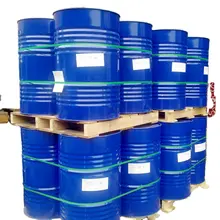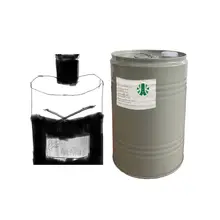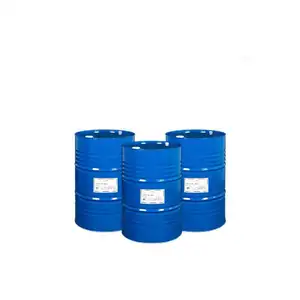A solvent is a substance capable of dissolving a solute to form a solution. While typically in liquid form, solvents can also exist as gases or solids. Their primary role is to transition materials from solid or gaseous states to liquids without altering the chemical composition of either the solute or the solvent. In industries ranging from pharmaceuticals to manufacturing and chemical synthesis, solvents are indispensable for enabling reactions, extractions, and the creation of solutions with precise concentrations.
Comprehensive Analysis of Solvent Types
A plethora of solvents are on offer, each possessing distinct qualities that render them apt for particular tasks. Acetone is known for its rapid evaporation, making it a staple for cleaning and thinning. Chloroform and dichloromethane, with their densities greater than water, are favored for extraction processes. Toluene and xylene, aromatic solvents, excel at dissolving paints, silicones, and rubbers. Meanwhile, hexanes, as aliphatic solvents, exhibit lower reactivity, making them ideal for oil and grease extractions. The molecular architecture of each solvent imparts specific solubility, volatility, and reactivity, which must be judiciously aligned with their industrial applications to guarantee both effectiveness and safety.
Detailed Structure and Operation of Solvents
The molecular architecture of solvents underpins their functional efficacy. For example, the inclusion of an oxygen atom endows ethyl acetate with superior solvent properties for substances like nitrocellulose and acrylics. The unique structure of dimethyl sulfoxide (DMSO) enables it to dissolve a wide range of polar and non-polar compounds, enhancing its versatility. The deployment of these solvents involves their molecular components interacting with the target substance, often necessitating agitation, temperature regulation, and precise contact durations to produce the intended solution.
Material Properties and Selection in Solvent Production
The selection of materials for solvent production hinges on their chemical attributes and compatibility with the target substances. Acetonitrile is prized in high-performance liquid chromatography for its low viscosity and superior elution strength. The choice of thf tetrahydrofuran for dissolving polymers and PVC is attributed to its capacity to swell and decompose polymer chains. These material selections contribute to heightened efficiency, truncated reaction times, and the generation of purer final products.
Business Applications and Value Creation
Solvents such as methyl ethyl ketone and toluene are pivotal to the manufacturing, automotive, and construction sectors, employed in degreasing, cleaning, and paint thinning. Within the pharmaceutical realm, solvents are instrumental in purifying and extracting compounds, thereby directly influencing the effectiveness and safety of drugs. In the printing industry, the advent of eco solvent inks has transformed digital printing, offering vivid colors and expedited drying times, thereby enhancing product quality and accelerating production, and thus creating substantial business value.
Functional Capabilities of Solvents
Solvents are engineered to fulfill specific functions such as dissolving resins, degumming oils, and catalyzing chemical reactions. Nmp (N-Methyl-2-pyrrolidone) is utilized in petrochemical processing to reclaim certain hydrocarbons, while diethyl ether is commonly employed as a starter fluid for engines due to its high volatility and combustibility. These functional attributes are paramount when selecting the appropriate solvent for industrial applications, ensuring tasks are executed with efficiency and safety.
Distinctive Features and Unique Selling Points
Unique characteristics of solvents like dimethyl sulfoxide include its capacity to permeate biological membranes, proving invaluable in pharmaceutical applications. Tetrahydrofuran (THF) is distinguished by its low viscosity, making it an exemplary solvent for adhesives and specialty coatings. These distinctive features provide a competitive edge, catering to niche markets where such specific properties are indispensable.
Benefits and Positive Outcomes for Users
The deployment of solvents yields a multitude of advantages, such as enhanced product performance, manufacturing efficiency, and cost reductions. The application of ethyl acetate in ink and paint production, for instance, results in a superior finish and quicker drying periods. The health and environmental gains are also noteworthy, particularly with the adoption of greener solvents like methylated spirits, which curtail toxic emissions and workplace hazards.
Effective Use and Maintenance of Solvents
Optimal use of solvents demands an understanding of their chemical characteristics and the specific process requirements they serve. For example, employing acetone for cleaning necessitates proper ventilation due to its high volatility. When selecting a solvent, considerations such as solubility, rate of evaporation, and toxicity are crucial. Regular upkeep and cleansing of storage vessels and dispensing apparatus are vital to avert contamination and maintain solvent quality. Adhering to manufacturers' guidelines for equipment installation is essential for ensuring operational safety and efficiency.
Target Audience and Meeting Their Needs
The solvent market caters to a broad spectrum of users, from large industrial manufacturers to specialized research labs. Acetonitrile, for instance, is particularly relevant for analytical chemists needing a high-purity solvent for chromatographic techniques. Grasping the diverse needs and preferences of these audiences is critical for suppliers on Alibaba.com, enabling them to meet specific demands such as solvent purity, packaging dimensions, and delivery options, thus ensuring customer satisfaction.
How does solvent quality affect industrial outcomes?
The caliber of a solvent bears directly on the efficiency and safety of industrial operations. Premium solvents guarantee the purity of pharmaceuticals, the uniformity of paints and coatings, and the dependability of chemical syntheses. Inferior solvents can result in diminished product quality, increased waste, and elevated health hazards, underscoring the necessity of procuring solvents from trustworthy suppliers on Alibaba.com.
What are the considerations for storing and handling solvents?
Appropriate solvent storage and handling are imperative for preserving their quality and safeguarding the workplace. Considerations such as temperature stability, adequate ventilation, and fire prevention are particularly crucial when managing volatile substances like chloroform and tetrahydrofuran. Adherence to safety regulations and the employment of suitable containment measures are essential to mitigate contamination risks and avert accidents.
How can businesses choose the right solvent for their specific needs?
Selecting the optimal solvent entails a comprehensive understanding of the solvent's attributes, the application's demands, and considerations of environmental and safety impacts. Businesses must weigh factors like solvent power, evaporation speed, toxicity, and regulatory adherence. Engaging with manufacturers and suppliers on Alibaba.com can yield valuable guidance on the most suitable solvent choices for particular industrial uses.









































 浙公网安备 33010002000092号
浙公网安备 33010002000092号 浙B2-20120091-4
浙B2-20120091-4